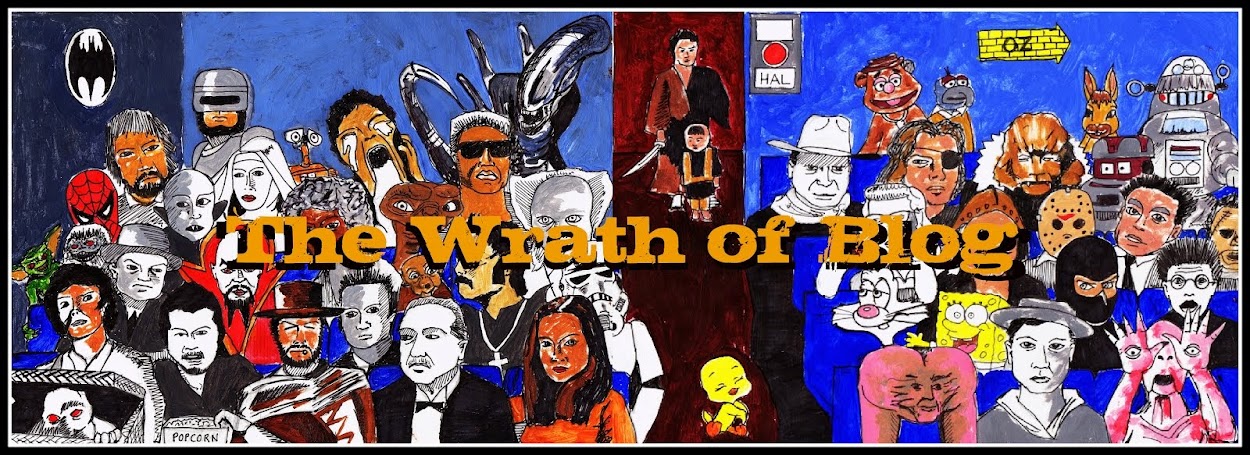 In the 1950s, an alien craft carrying slug-like creatures crashes down to Earth. At a nearby lover's lane, a boy heads out into the woods to investigate and comes across a canister, which naturally explodes in his face and unleashes the squirmy extra-terrestrials, one of which makes its way inside the unsuspecting boy orally. The girl, who is left behind in the car, meets an unfortunate demise at the hands of an escaped serial killer before a rookie cop blows the mad man away. Fast-forward to 1986, and teenager Chris Romero (Jason Lively) wants desperately to hook up with sorority girl Cynthia Cronenberg (Jill Whitlow). Backed by his best friend J.C. (Steve Marshall), the clueless twosome figure that the only way to impress Cynthia is to join a fraternity. To enter the Beta Epsilon fraternity - which is headed by Cynthia's douchebag of a boyfriend - Chris and J.C. are tasked with stealing a corpse from the nearby medical centre and placing it front of a sorority house. They break in easily enough, but what awaits them is the cryogenically frozen body of the unfortunate boy from the opening scene. Naturally, the cadaver escapes, and soon enough the town is overrun with zombies and giant slugs looking for a host.
In the 1950s, an alien craft carrying slug-like creatures crashes down to Earth. At a nearby lover's lane, a boy heads out into the woods to investigate and comes across a canister, which naturally explodes in his face and unleashes the squirmy extra-terrestrials, one of which makes its way inside the unsuspecting boy orally. The girl, who is left behind in the car, meets an unfortunate demise at the hands of an escaped serial killer before a rookie cop blows the mad man away. Fast-forward to 1986, and teenager Chris Romero (Jason Lively) wants desperately to hook up with sorority girl Cynthia Cronenberg (Jill Whitlow). Backed by his best friend J.C. (Steve Marshall), the clueless twosome figure that the only way to impress Cynthia is to join a fraternity. To enter the Beta Epsilon fraternity - which is headed by Cynthia's douchebag of a boyfriend - Chris and J.C. are tasked with stealing a corpse from the nearby medical centre and placing it front of a sorority house. They break in easily enough, but what awaits them is the cryogenically frozen body of the unfortunate boy from the opening scene. Naturally, the cadaver escapes, and soon enough the town is overrun with zombies and giant slugs looking for a host.There's a real energy and spirit to Dekker's film that is lacking from many low-budget horror movies from the same era, but what drags the movie down is a lack of any original ideas of its own. While there's fun to be had with spotting references to other (and better) films (Dick Miller even shows up for an obligatory cameo), this can often feel like a lazy way to patch up the lack of anything fresh. They also missed a trick by relegating beaten-down detective Cameron (Tom Atkins) to a supporting character. He has all the best lines and Atkins is clearly enjoying himself in the role, so you can only wonder how better the film would have been if our guide was an emotionally-scarred and wise-cracking old dog rather than a couple of sad-sack horny teenagers looking to impress a girl. That said, Night of the Creeps delivers exactly what its target audience - those still awake in the early hours - requires, and manages to round-up practically everything that is charming about low-budget 80's B-movies, even touching on the teen sex comedies made popular by the likes of Porky's. It perfectly sets itself up for a sequel before its box-office returns put a quick end to that idea, but it's never too late.
Directed by: Fred Dekker
Starring: Jason Lively, Tom Atkins, Steve Marshall, Jill Whitlow, Wally Taylor
Country: USA
Rating: ***
Tom Gillespie
















